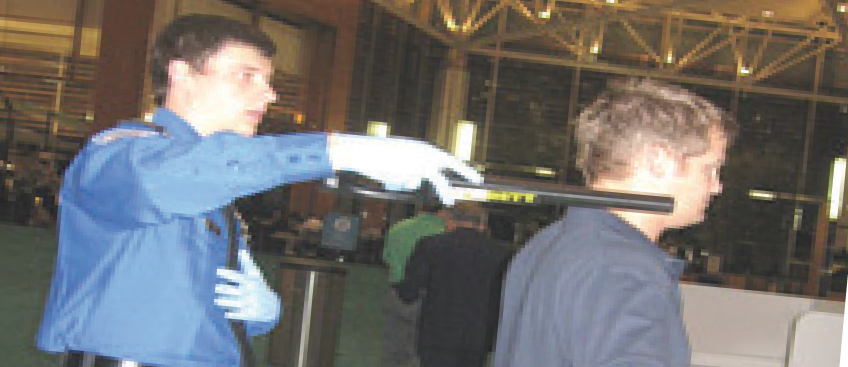One of the most important and difficult parts of starting a new semester at college, particularly for non-local students, can be the process of actually making it back to campus. To those of you who have to journey to and from our campus by any means, but especially by plane, I salute you and I feel your pain.
Having grown up on an island in Alaska, I’m no stranger to irritating and inconvenient methods of travel. I’ve heaved up my guts on multiple floatplanes and ridden on packed, airless ferries for over sixty hours at a time. Despite this, however, my least favorite method of transportation has always been regular old airplanes. This is almost entirely due to one hideously unpleasant component of air travel: going through TSA.

The TSA, or Transportation Security Administration, is a division of the Department of Homeland Security that was established in response to the 9/11 attacks. The TSA is responsible for such hits as making you remove your shoes and jacket, undergo screening via full-body scanner and/or metal detector and/or patdown, and display some form of legal ID before you can board the plane. Most Americans are likely familiar with the hassles that result from TSA, such as the fact that the time commitment of going through causes airports to recommend arriving at the airport one to four hours before your scheduled departure time. However, TSA’s more surface-level irritations are only the tip of the iceberg of structural discrimination and incompetency.
TSA’s supposed efforts to defend national security often appear in the form of racial profiling. Black women report frequently being subjected to intrusive hair searches as a result of the fact that the full-body scanners used by TSA often misidentify their hair as a foreign object. These machines also alert more frequently when exposed to turbans or wigs. While the TSA website claims that their audience would “be surprised what can be hidden in hair,” they decline to give any example of a time when explosives were found in someone’s hair. Middle Eastern and Muslim passengers have also long been subject to racial profiling. TSA’s own records reveal internal investigations into such profiling in multiple major cities, as well as the previous use of training materials that stereotype Arab and Muslim persons as terrorists.
The systems used by the TSA also result in discrimination against transgender and gender-nonconforming passengers. When a passenger goes through a full-body scanner, a TSA agent assesses their gender and presses a button to mark them as “male” or “female.” If someone with a penis is scanned as a woman, or someone with breasts is scanned as a man, they will be flagged as an “anomaly,” and the offending person will generally be subjected to a patdown of the “anomalous” body parts from TSA officers.
These patdowns are physically invasive and may trigger gender dysphoria for the people subject to them. People in these situations are not generally allowed to choose the gender of the officer who is patting them down, which often results in the harassment of transgender women in particular by male officers. Furthermore, while TSA officers are not meant to be able to ask passengers to remove clothing during patdowns, passenger testimony indicates that such violations of privacy sometimes happen regardless.
Proponents of the TSA might argue that these experiences with racist and transphobic harassment are a necessary price to pay in order to protect national security. However, this argument doesn’t hold water, chiefly because TSA is actually remarkably ineffective at its stated purpose. In 2017, undercover Homeland Security officers conducting tests of TSA efficacy were able to sneak fake weapons through TSA 70% of the time; additionally, between 2004 and 2010, at least 16 individuals later accused of terrorist involvement flew through U.S. airports 23 different times without being detected by TSA.
As security technologist Bruce Schneier puts it, the true purpose of the TSA is not security, but “security theater.” In other words, the hassle and hoop-jumping of going through TSA is not meant to prevent acts of terrorism so much as it is to reassure Americans that something is being done to prevent acts of terrorism. As a gender non-conforming person who has been flagged as an “anomaly,” and has seen many of my transgender peers and peers of color undergo airport profiling, I do not feel reassured in any way by TSA’s theater. Homeland Security, I beg of you: abolish the TSA, and spend that annual $8 billion budget on something that might actually assist the American people.
